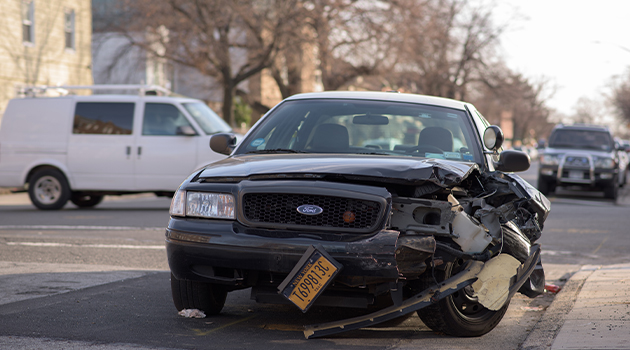Building a Car Accident Claim? How to Maximize Your Potential Payout

In the state of Florida, car accident victims may be able to recover compensation for a variety of damages including medical bills, lost wages, pain and suffering, and property repairs. Just because these damages are available, however, doesn’t mean the insurance company will offer a fair settlement.
If you were hurt in amotor-vehicle collision, you must take certain steps over the days and weeks that follow to maximize your chances of collecting a fair payout. You must also avoid making critical mistakes along the way such as posting about your injuries on social media or providing a recorded statement to the insurance company.
If you’re in the process of building a car accident claim, be sure to complete the following steps to give your case the best chance of success:
1. Preserve Evidence
There’s no way to predict what kinds of evidence will be most valuable until your legal team has conducted a thorough investigation, so preserve everything you can. This might include dash cam footage, recordings from nearby surveillance cameras, statements from eyewitnesses, arrest records, cell phone records, photographs of the wreckage, and vehicle maintenance records.
You should also start tracking damages from day one. In addition to saving diagnostic images, pharmacy receipts, and other medical records, take a few minutes each day to write about the struggles you now face as a result of your injuries. It’s wise to make a note of every day that you miss work, as well.
2. Follow Your Doctor’s Orders
Personal injury claimants have a duty to mitigate damages. An important part of mitigating damages is taking reasonable measures to facilitate your medical recovery.
If you fail to seek prompt treatment or you resume work before your doctor has approved it, you could be found partially liable for your damages. Because of Florida’s pure comparative fault rule, failing to mitigate damages could lead to a significant reduction of your financial recovery.
3. Don’t Rush into Settlement Negotiations
It is often unwise to accept a settlement before reaching maximum medical improvement (MMI). Even if you’re finally on the upswing, there’s no way to predict what kinds of complications might arise over the course of treatment. As such, commencing negotiations before reaching MMI could leave you with a payout that doesn’t actually cover all the damages you incur.
4. Consider Future Losses
In the state of Florida, personal injury claimants may be entitled to compensation for anticipated damages. Examples include future medical bills and lost income and benefits due to reduced earning capacity. Since such damages could make up a significant portion of your losses, it is important to account for them.
5. Meet Critical Deadlines
If the opposing party is uncooperative, filing a lawsuit may be the only way to pursue the compensation you deserve. Should you fail to file a formal suit before the statutes of limitations has passed, though, the court will likely dismiss your case.
In the state of Florida, the standard filing deadline for personal injury lawsuits is four years; however, if you want to sue a government entity, there is a three-year deadline for personal injury suits and a two-year deadline for wrongful death suits. Before you may file a suit, though, you must submit written notice to the appropriate agency and allow for a 180-day investigation.
Speak with a West Palm Beach Car Accident Lawyer
If you were struck by a drunk, distracted, or otherwise reckless driver, contact Donaldson & Weston to determine the most strategic way to proceed. We combine the knowledge and resources of a large firm with the personal touch of a small practice. Call 561-299-3999 or use our Online Contact Form to set up a free case evaluation with West Palm Beach personal injury attorney.
